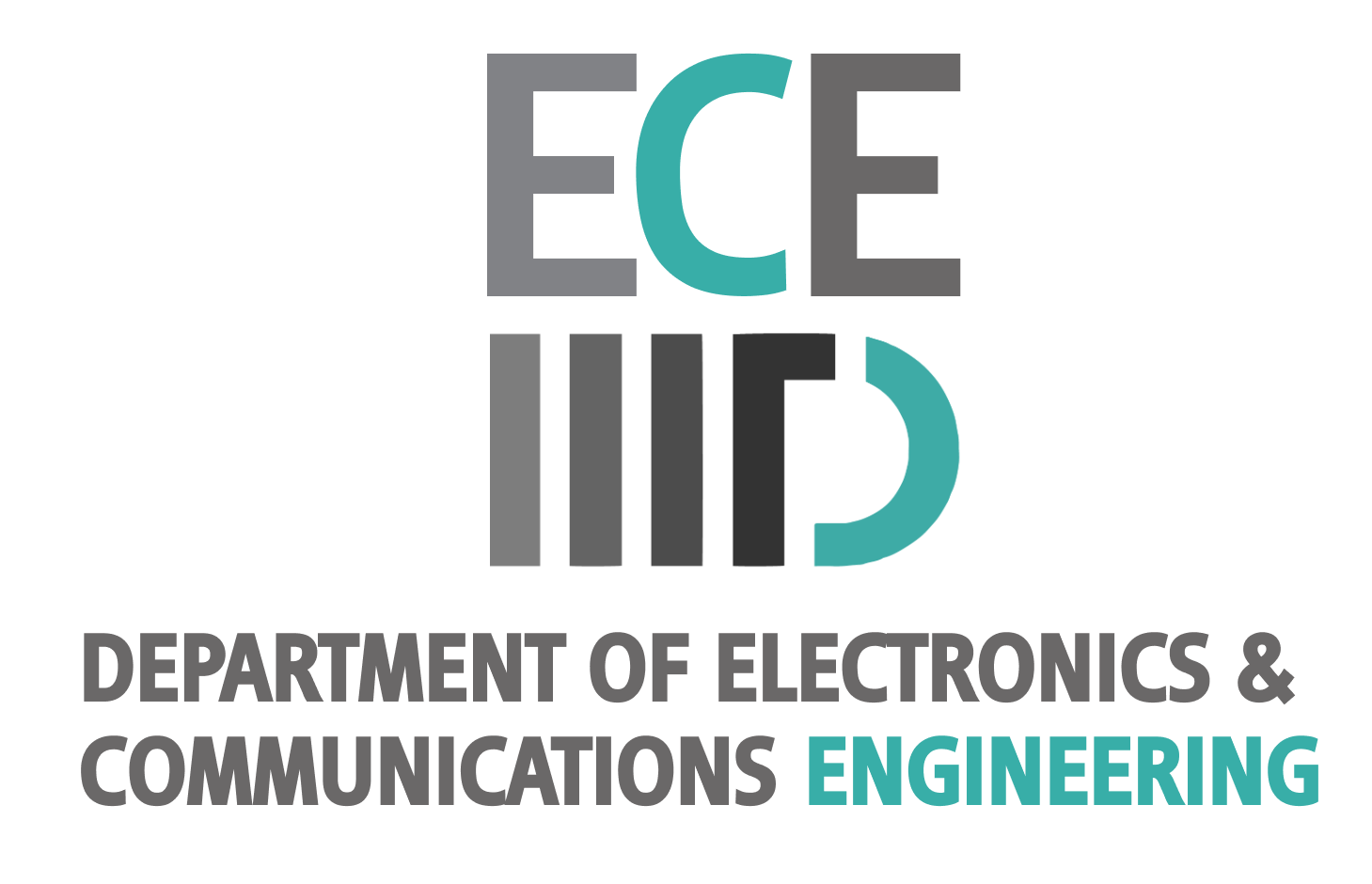Mission & Vision
- The ECE Department's mission is:
- To carry out advanced research and development in various areas of Electronics & Communication Engineering with different application domains
- To train and educate, at both undergraduate and postgraduate levels, engineers of outstanding ability who can become innovators and new product creators
- The vision of the department is to be a world class department which:
- Is globally respected for its research capability, with some research groups being considered as among the leaders globally and within the country
- Has thriving UG and PG programs
- Is socially relevant, globally linked, and industry facing
POs, PEOs & PSOs
For B.Tech. (UG):
________________________________________________________________________________________________________________
Program Outcomes (POs):
- Engineering Knowledge: Apply knowledge of mathematics, natural science, computing, engineering fundamentals and an engineering specialization as specified in WK1 to WK4 respectively to develop to the solution of complex engineering problems.
- Problem Analysis: Identify, formulate, review research literature and analyze complex engineering problems reaching substantiated conclusions with consideration for sustainable development. (WK1 to WK4)
- Design/Development of Solutions: Design creative solutions for complex engineering problems and design/develop systems/components/processes to meet identified needs with consideration for the public health and safety, whole-life cost, net zero carbon, culture, society and environment as required. (WK5)
- Conduct Investigations of Complex Problems: Conduct investigations of complex engineering problems using research-based knowledge including design of experiments, modelling, analysis & interpretation of data to provide valid conclusions. (WK8).
- Engineering Tool Usage: Create, select and apply appropriate techniques, resources and modern engineering & IT tools, including prediction and modelling recognizing their limitations to solve complex engineering problems. (WK2 and WK6)
- The Engineer and The World: Analyze and evaluate societal and environmental aspects while solving complex engineering problems for its impact on sustainability with reference to economy, health, safety, legal framework, culture and environment. (WK1, WK5, and WK7).
- Ethics: Apply ethical principles and commit to professional ethics, human values, diversity and inclusion; adhere to national & international laws. (WK9)
- Individual and Collaborative Team work: Function effectively as an individual, and as a member or leader in diverse/multi-disciplinary teams.
- Communication: Communicate effectively and inclusively within the engineering community and society at large, such as being able to comprehend and write effective reports and design documentation, make effective presentations considering cultural, language, and learning differences
- Project Management and Finance: Apply knowledge and understanding of engineering management principles and economic decision-making and apply these to multidisciplinary environments.
- Life-Long Learning: Recognize the need for, and have the preparation and ability for i) independent and life-long learning ii) adaptability to new and emerging technologies and iii) critical thinking in the broadest context of technological change. (WK8)
Program Educational Objectives (PEOs):
- To undertake industry careers involving innovation and problem solving using Electronics & Communication technologies.
- To undertake research careers in Electronics Communications and allied areas.
- To contribute to society by becoming a model citizen, who is good at communication, ethics, professionalism.
Program Specific Outcome (PSOs):
- The ability to absorb and apply fundamental knowledge of core Electronics and Communication Engineering subjects in the analysis, design, and development of various types of electronic systems.
- Competence in using modern Electronics and Communication Engineering software and hardware tools for the design and analysis of complex electronic systems and their real-life applications.
- Excellent adaptability to changing work environment, good interpersonal skills, professional ethics and societal responsibilities.
For M.Tech. (PG):
________________________________________________________________________________________________________________
Program Outcomes (POs):
- PO1: An ability to independently carry out research /investigation and development work to solve practical problems.
- PO2: An ability to write and present a substantial technical report/document
- PO3: Students should be able to demonstrate a degree of mastery over the area as per the specialization of the program. The mastery should be at a level higher than the requirements in the appropriate bachelor program
- PO4: Students should be able to develop an engineering solution to a given technological problem using the knowledge earned through the course curriculum, internships and/or projects.
Program Educational Objectives (PEOs):
- To undertake industry careers involving innovation, problem-solving and leadership in Electronics & Communication Engineering and allied areas.
- To undertake research careers in R&D organizations and academia in Electronics and Communication Engineering and allied areas.
- To contribute to society by becoming a model citizen, who is good at communication, holds high standards of intellectual and personal honesty in every aspect of their career.

